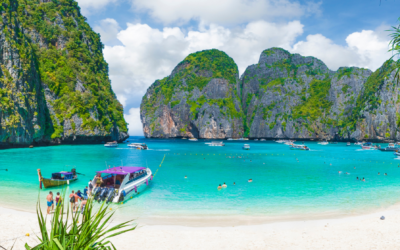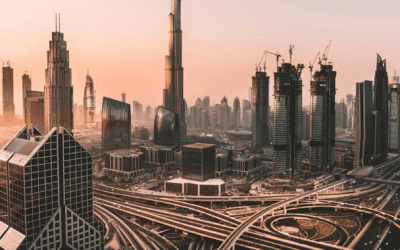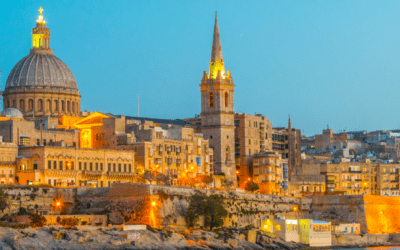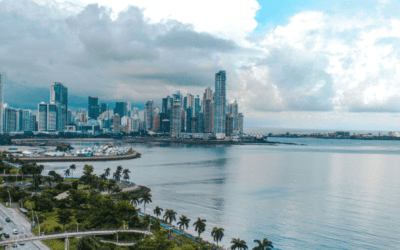Dateline: Kuala Lumpur International Airport
On a freezing night in 1773, the Sons of Liberty were “running wild”.
The British empire, determined to keep those in the colonies under their thumb, was engaging in crony capitalism designed to protect their own tea interests and continue assessing unwanted taxes across the pond.
Of course, the result is one of the most famous stories in American history: the Boston Tea Party.
Fed up with the idea that Britain could manipulate the New World through the ironic process of taxing those very people it was at odds with, the colonists took matters into their own hands and dumped 342 crates of tea into Boston Harbor.
Fast forward a few hundred years and almost 10,000 miles away and people here aren’t happy.
On April 1, Malaysia instituted a Goods and Services Tax, or GST, and the government has been promoting it aggressively.
Everywhere you turn, there’s some campaign using a “man on the street” approach to sell Malaysians on the alleged benefits of a 6% tax on almost everything they buy.
While some restaurants have been charging this tax for years, the tax will now apply to anything from bottled water to train tickets. It’s basically the Malaysian version of an American sales tax.
And people here aren’t happy about it. In fact, while talking to a few of my Malaysian friends today, I was surprised that locals are practically screaming bloody murder.
Here’s a country where the government decides it wants to raise revenue by collecting $0.05 in tax on every bottle of Coca-Cola people buy, and rather than just sit down and take it as a great innovation that will solve all of the country’s problems, people see right through it.
Malaysia has a reputation for being a country that doesn’t simply parrot the conventional wisdom. Regardless of your thoughts on the matter, you can’t deny that there is a substantial 9/11 truth moment here, for instance.
And as the government is imposing what would be considered a relatively low sales tax by US standards – and certainly by European standards – Malaysians are pushing back.
Now, I highly doubt the 6% GST here will go away. If there’s anything we know about taxes, they seldom go away once enacted.
However, a population that is actually educated about their taxes and their global competitiveness can contribute to keeping the government in check.
In the western world, most people could care less about taxes. Even the most fiscally conservative US persons claim they’ll push back in a big way when the government gets too big, yet it’s politics as usual even as tax rates for successful entrepreneurs are as much as twenty times those that caused colonists in Boston to dump tea into the harbor.
Now, I’m not advocating breaking any laws, but let’s be honest: even the biggest advocates of “limited government” in the United States wouldn’t be willing to destroy a bunch of government property to prove a point.
They’ll merely go along paying higher and higher taxes – now well over 50% in some areas – hoping and praying that the next politician will change things.
Then, they’ll point the finger at countries like Malaysia and Singapore and say that they aren’t “free” because they aren’t western-style democracies.
In many ways, however, people here in Asia understand in a much more real way what makes their countries successful… and what will make them even more successful.
And while Malaysia is imposing GST, they’re also lowering corporate tax rates. Doing business here isn’t dirt cheap, and foreigners need to bring a low six-figure sum to set up most on-the-ground businesses (save for in Malaysia’s offshore haven of Labuan), but tax rates are pretty moderate.
If you’re setting up a physical shop, taxes are reasonable. If you’re doing business online, taxes can practically be a rounding error.
Sure, the place just imposed a rather small sales tax which means you’ll probably end up with more coins as change, but the government is also aware that they need to do things to get people here to actually pay the GST.
That attitude is prevalent all around this region. The Turkish Airlines magazine I picked up in the airport lounge had no fewer than three ads for medical tourism in Turkey.
Turkey and Malaysia are rolling out the red carpet to attract medical tourists with world-class hospitals and a simple sales pitch: even after we fly you over, put you up in a five-star hotel and give you world-class care, you’ll STILL pay less than you would at home.
Do you hear that kind of can-do attitude anywhere in the west? I don’t think so.
In a perfect world, we’d live in a world with no taxation. In a pragmatic world, we’d choose to live in a place where an imperfect government at least realizes that treating businesses and entrepreneurs right (and not punitively taxing foreign-source income) is an important step in growing and sustaining an economy.
Quite simply, Malaysia can’t tax the hell out of everybody or else some of those people would leave. Economies run on margins, and even a small percentage of businesses moving down to Singapore would put a serious dent in this place.
I frequently say that you can determine a great place to live or do business by the culture. Specifically, the culture of how a country views itself in the world.
Thailand and Malaysia share a common border, and there’s not a lot of difference between them. Yet one country thinks it’s God’s gift to the world and has no desire to do anything to attract businesses other than offering 22-year-old hipsters cheap pad thai.
The other isn’t perfect but has a culture that favors growth. That’s what you want when figuring out where to plant your next flag.
The United States and the European Union act as if the days of Empires still exist. That’s because, in a way, they still do. The world’s largest countries have been economic imperial powers that don’t need to treat their citizens well in order to succeed.
At least for now.









